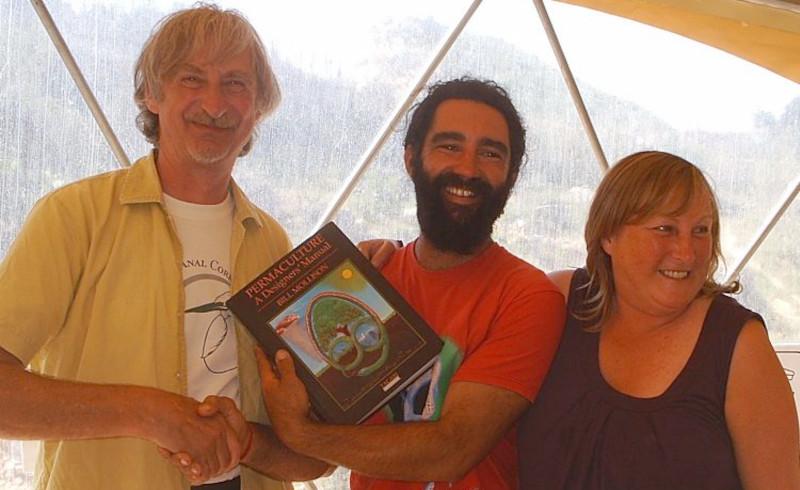
Core topics
The course can be wide-ranging but we keep a focus on key permaculture topics.
Design – good design is about doing things more elegantly and economically. Permaculture design concentrates on the way things function. We follow the principle that, in Nature, elegant forms arise from things that function well. This is the heart of the course. We study ethics, design strategies, methods, techniques and tools in a gentle introduction to the art and craft of permaculture design.
Natural systems and pattern - with billions of years of "experience" in creating systems that work well, Nature is a powerful teacher, and an inspiration to permaculture designers. Understanding Nature and the underlying way that our world works is of great benefit to permaculture designers. We will explore the uses of patterns to avoid getting bogged down in the detail of the abundance of information that often surrounds us.
Appreciation of natural resources
Water is vital for life and it is another resource that we must care for and use wisely
Soils - most of the living things that we depend on have sprung up out of the soil. Our soils are a precious resource.
Forests, trees, and the way that they use energy, make a huge contribution to the health and stability of the planet.
Climate - permaculture designers can move across climate zones and still work effectively, as long as they have access to local knowledge. Sometimes, local conditions produce a climate that is like that in another zone, thousands of miles away. We will look at climatic factors, and include microclimates
Human activities
Cultivation - the growing of plants of all types,including aquaculture and silvaculture
Earthworks - throughout our history, humans have worked on the landscape to enhance growing areas, manage water and provide access routes. We will look at "one-off" investments of energy in earthworks and their use in earth repair
Society - social and cultural factors are often the main barrier to the transition to a more sustainable world. We will examine human nature and our impact on the planet, through some key principles of healthy settlements. cities and their hinterlands, human organisation, "right livelihood", business and finance. We use many examples and case studies on the course to illustrate the different topics.
You may view the programme in more detail day-by-day.
